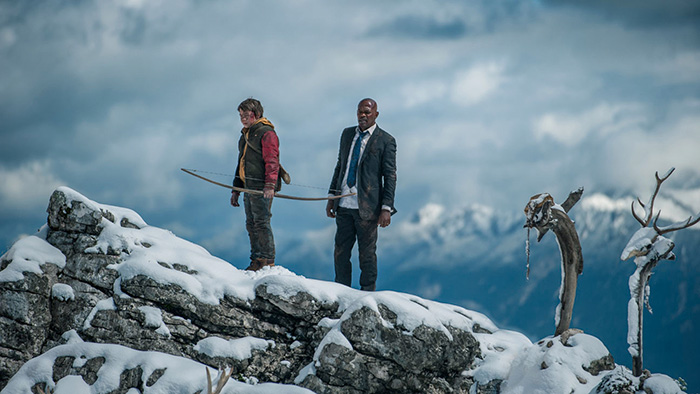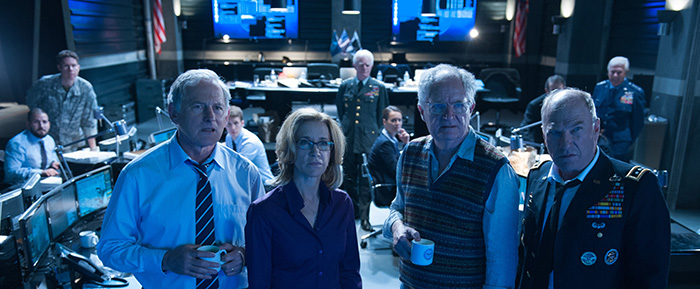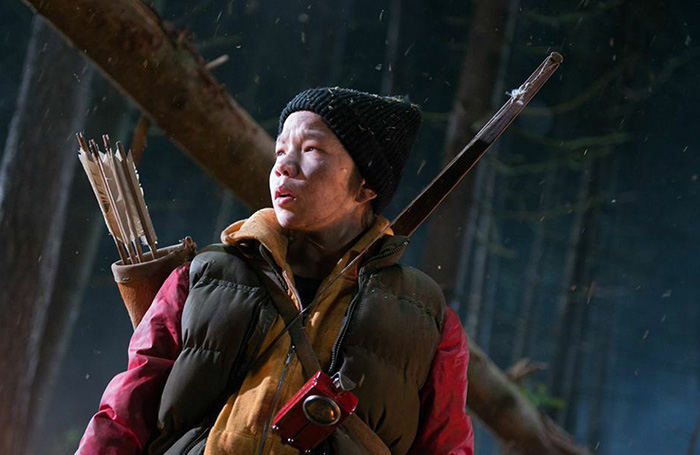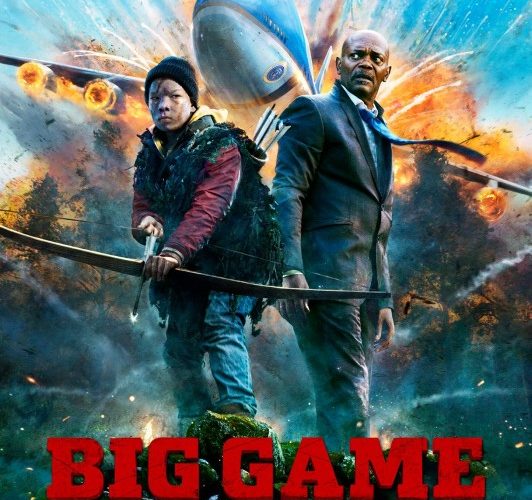Despite being rated PG-13 in America, Jalmari Helander‘s Big Game should target audiences between 10-15 like Dan Smith‘s Young Adult novelization of the film. Being a Finnish production—the most expensive in the country’s history—probably means it did just that abroad. Unfortunately Americans cringe at the sound of curse words reaching their children’s ears, forgetting how readily accessible they are at home on TV and otherwise depending on whether parents or siblings aren’t careful. The inclusion of this language as well as the amount of death necessary for an action film of its kind to be effective ultimately puts the studio in the tough position of pretending the final result’s palatable for older audiences hoping for a good ol’ fashioned ass-kicking. At the end of the day, however, Big Game‘s a thirteen-year old’s coming of age adventure.

This doesn’t have to be a bad thing—it merely handcuffs the U.S. box office from achieving the type of wider success it potentially could. It still plays for adults thanks to a terrorist plot dropping the President of the United States (Samuel L. Jackson‘s William Moore) into the desolate forestry of Finland with unknown assailants on his trail, but this Commander in Chief is no hero. In fact, casting Jackson could be seen as a misfire on paper considering the character’s all bark and no bite. He doesn’t even try and hide this truth, constantly yelling in fright or hiding whenever danger arises. The biggest surprise of the movie is actually how great this generally typecast badass is playing the wuss. Luckily for him, little Oskari (Onni Tommila) comes along with bow and arrow to help.
Or at least try. You see, Oskari is like most kids at the beginning of such tales: incapable of accomplishing what he sets out to do. The pressure only increases since he’s the son of his village’s greatest hunter Tapio (Jorma Tommila), the man who killed a bear and brought back its head on his own thirteenth birthday pilgrimage towards manhood. Oskari can’t even pull the string back on his bow far enough for the head of ceremony to deem him ready to go out alone. It takes Tapio begging him to do so before the boy can mount his gas-powered sled and search for his first kill. Who knew the instance he was out of sight would be the moment Hazar (Mehmet Kurtulus) and his men launch an attack on Air Force One flying overhead.

Fire, metal, and an escape pod straight out of Apollo 13 rain down on Oskari and these unlikely survivors are left fending for themselves as assassins and the pride of a father propel them forward. The pair has fantastic chemistry, mixing the severity of their situation with the disarming humor needed to break down cultural barriers (the boy speaks English so language isn’t really a struggle). President Moore is forced to check his ego and understand how important Oskari’s mission is, (he doesn’t yet know he’s being hunted after all), and the boy must put any reservations he has in himself aside to be the man his father expects him to become. Juxtaposing his brazen attitude with Moore’s cowardice is effectively cute because of the absurdity of their plight. Charm goes a long way towards Helander’s success.
Written by the director with a co-story credit to Petri Jokiranta, the black humor of Big Game‘s implausibility wonderfully complements the usually over-wrought notion of a terrorist attack. His outsider interpretation of America hubristically thinking it’s as great as other nations hope assists the satirical nature of the story. I don’t think an American writer would put the type of jingoistic vitriol Helander does into the mouth of the Vice President (Victor Garber) or give a formerly retired key CIA consultant (Jim Broadbent) the type of Sherlockian knowledge of situations and obscure players who wouldn’t be on anyone’s radar so freely. I know why he does this in hindsight, but the fact no one questions such attitudes or implausible intellect in Washington DC proves it was also done for the humor of American ego above plot.

There’s something to laughing at these “powerful” people being helpless to do anything but watch a satellite feed while a foreign teen protects POTUS that gets you past the B-movie sensibilities and not quite pristine special effects. Being allowed to smile and embrace the fun thrill ride always facilitates our desire to give the benefit of the doubt when toeing that line. Performances help too when you’re so giddy at Jackson acting defenseless and scared that you forget he’s floating against a green screen inside a freezer chest. Couple this with his Secret Service head Morris (Ray Stevenson) being the stoic pillar of determination and you accept the stereotypes as they are—easy entry points into a film trying to entertain from start to finish while also sharing a welcome message of youth conquering fears and finding self-pride.
Just because everyone plays it straight while a distractingly sweeping score attempts injecting epic emotional scope, don’t be fooled into thinking what’s happening is to be taken as pure drama. Big Game‘s not a “so bad it’s good” flick where laughter comes unintentionally due to bad production value or misguided aspirations. It wears its silliness on its sleeves—the characters simply aren’t self-aware like us. This is a purposeful maneuver to amp up the entertainment inherent to movies where someone’s parachuting through the sky while land-to-air missiles soar past towards the most recognizable plane in the world above him. Helander wants us to get wrapped up in the melodrama and to cheer and clap along the way as Oskari evolves into a hero and Moore cements his damsel in distress role. And for the most part he does.
Big Game hits limited release on Friday, June 26th.

